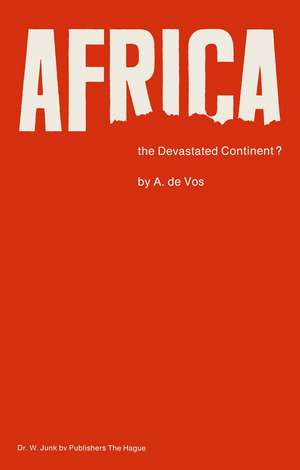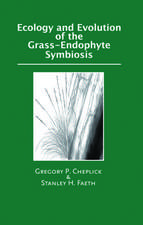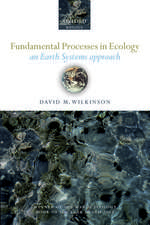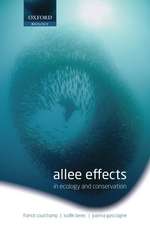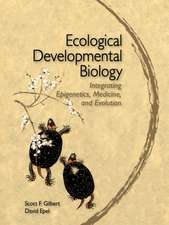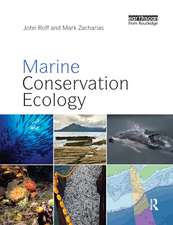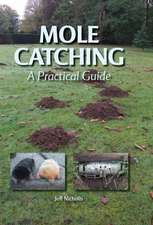Africa, the Devastated Continent?: Man’s impact on the ecology of Africa: Monographiae Biologicae, cartea 26
Autor A. de Vosen Limba Engleză Paperback – 9 ian 2012
Din seria Monographiae Biologicae
- 24%
 Preț: 2612.51 lei
Preț: 2612.51 lei - 18%
 Preț: 948.92 lei
Preț: 948.92 lei - 15%
 Preț: 648.74 lei
Preț: 648.74 lei -
 Preț: 397.59 lei
Preț: 397.59 lei - 28%
 Preț: 91.90 lei
Preț: 91.90 lei -
 Preț: 379.86 lei
Preț: 379.86 lei -
 Preț: 388.34 lei
Preț: 388.34 lei -
 Preț: 414.91 lei
Preț: 414.91 lei -
 Preț: 395.47 lei
Preț: 395.47 lei -
 Preț: 389.49 lei
Preț: 389.49 lei -
 Preț: 401.24 lei
Preț: 401.24 lei -
 Preț: 394.71 lei
Preț: 394.71 lei -
 Preț: 405.99 lei
Preț: 405.99 lei -
 Preț: 425.84 lei
Preț: 425.84 lei -
 Preț: 381.21 lei
Preț: 381.21 lei -
 Preț: 389.56 lei
Preț: 389.56 lei - 18%
 Preț: 1833.65 lei
Preț: 1833.65 lei - 18%
 Preț: 1230.35 lei
Preț: 1230.35 lei - 18%
 Preț: 1027.08 lei
Preț: 1027.08 lei -
 Preț: 399.67 lei
Preț: 399.67 lei - 18%
 Preț: 2493.72 lei
Preț: 2493.72 lei -
 Preț: 417.59 lei
Preț: 417.59 lei -
 Preț: 404.89 lei
Preț: 404.89 lei -
 Preț: 418.76 lei
Preț: 418.76 lei -
 Preț: 408.37 lei
Preț: 408.37 lei - 15%
 Preț: 650.69 lei
Preț: 650.69 lei - 15%
 Preț: 652.31 lei
Preț: 652.31 lei -
 Preț: 395.37 lei
Preț: 395.37 lei - 18%
 Preț: 1232.26 lei
Preț: 1232.26 lei - 15%
 Preț: 637.59 lei
Preț: 637.59 lei - 18%
 Preț: 1231.95 lei
Preț: 1231.95 lei - 18%
 Preț: 1226.90 lei
Preț: 1226.90 lei - 15%
 Preț: 658.22 lei
Preț: 658.22 lei -
 Preț: 353.75 lei
Preț: 353.75 lei - 18%
 Preț: 1224.36 lei
Preț: 1224.36 lei -
 Preț: 386.22 lei
Preț: 386.22 lei - 20%
 Preț: 723.22 lei
Preț: 723.22 lei - 15%
 Preț: 652.49 lei
Preț: 652.49 lei - 18%
 Preț: 1228.62 lei
Preț: 1228.62 lei - 18%
 Preț: 945.30 lei
Preț: 945.30 lei - 18%
 Preț: 1231.64 lei
Preț: 1231.64 lei - 15%
 Preț: 633.68 lei
Preț: 633.68 lei - 20%
 Preț: 572.09 lei
Preț: 572.09 lei - 18%
 Preț: 1844.54 lei
Preț: 1844.54 lei -
 Preț: 386.61 lei
Preț: 386.61 lei
Preț: 557.46 lei
Preț vechi: 696.82 lei
-20% Nou
Puncte Express: 836
Preț estimativ în valută:
106.68€ • 110.97$ • 88.07£
106.68€ • 110.97$ • 88.07£
Carte tipărită la comandă
Livrare economică 10-16 aprilie
Preluare comenzi: 021 569.72.76
Specificații
ISBN-13: 9789401019408
ISBN-10: 9401019401
Pagini: 244
Ilustrații: 236 p.
Dimensiuni: 156 x 244 x 13 mm
Ediția:Softcover reprint of the original 1st ed. 1975
Editura: SPRINGER NETHERLANDS
Colecția Springer
Seria Monographiae Biologicae
Locul publicării:Dordrecht, Netherlands
ISBN-10: 9401019401
Pagini: 244
Ilustrații: 236 p.
Dimensiuni: 156 x 244 x 13 mm
Ediția:Softcover reprint of the original 1st ed. 1975
Editura: SPRINGER NETHERLANDS
Colecția Springer
Seria Monographiae Biologicae
Locul publicării:Dordrecht, Netherlands
Public țintă
ResearchCuprins
Foreword.- I. The African environment.- Geology.- Geography.- Phytogeography.- Zoogeography.- Climate.- Soils.- Vegetation types.- II. Ecological zones of Africa.- The use of ecosystems by man.- The ecosystem concept.- The savanna environment, an example of a man-influenced ecosystem.- The Guinean zone.- The Sudanian zone.- The Sahelian zone.- The Saharian zone.- The Mediterranean zone.- The Eastern zone.- The Zambezian zone.- The Transvalian zone.- The Basutolian zone.- The Kalaharian zone.- The Karroo-Namaqualian zone.- The Cape zone.- III. Man as an environmental agent.- Primitive man’s influence on the environment.- Modern man’s influence on the environment.- IV. Specific environmental problems.- Nomadism and consequences of sedentarization.- Marginal lands.- The problem of desertification.- The invasion of Africa by plants and animals.- The preservation of endangered species.- The need for preservation of natural vegetation.- The need for national parks or equivalent reserves.- Animal influences on the grassland environment.- Wetlands, estuaries and mangrove swamps.- The pesticide problem.- Land tenure problems.- V. Problems, needs and potentials in land use.- Agriculture.- Range and pasture management.- Animal husbandry.- Forestry.- Inland fisheries.- Wildlife.- Soil and water conservation.- Food, health and nutrition.- VI. Planning for the future.- The need for regional planning.- Ecological considerations in land use planning.- Industrial development.- Planning for development: a positive approach to more efficient land use.- Literature cited.
